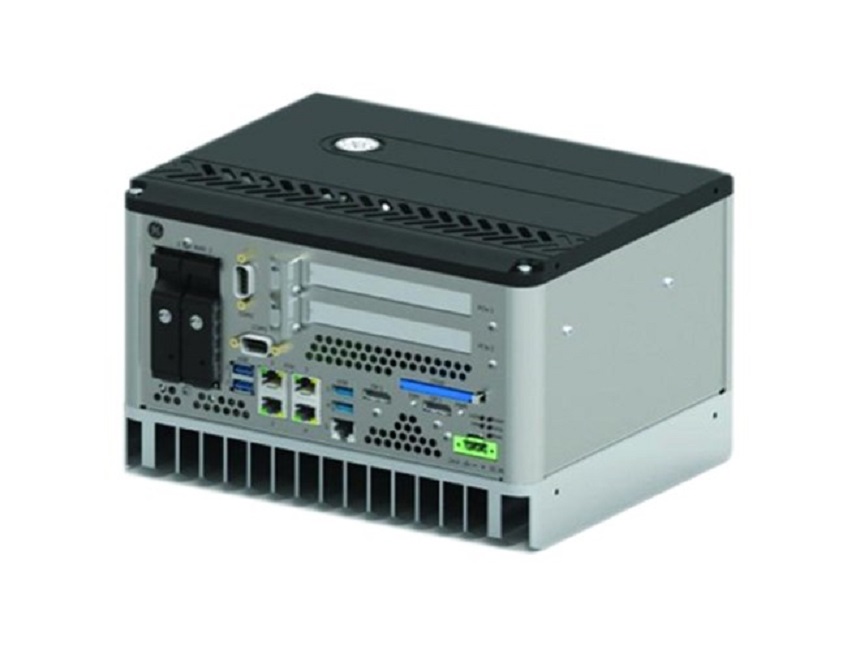Technology
30% of Industrial Computers in Nigeria Attacked in H1–Kaspersky

By Adedapo Adesanya
Global cybersecurity company, Kaspersky, has noted that more than 30 per cent of industrial computers in Nigeria and other African regions were attacked in the first half of the year.
Industrial Control Systems (ICS) computers are used in oil and gas, energy, automotive manufacturing, building automation infrastructures, and other spheres to perform a range of OT functions – from the workstations of engineers and operators to supervisory control and data acquisition (SCADA) servers and Human Machine Interface (HMI).
According to the ICS threat landscape report by Kaspersky, in the first half of 2022, in the African regions, computers in the environment were attacked using multiple means – malicious objects, phishing pages, and spyware.
Cyberattacks on industrial computers are considered extremely dangerous as they may cause material losses and production downtime for the controlled production line and the facility as a whole. Moreover, industrial enterprises put out of service can seriously undermine a region’s social welfare, ecology, and macroeconomics.
Giving a breakdown of malicious objects blocked in Nigeria, the Kaspersky report showed that 34 per cent of malicious objects were blocked. 13 per cent of malicious scripts and phishing pages were blocked in Nigeria, and 8 per cent of spyware were blocked in the country.
Speaking on this, Mr Emad Haffar, Head of Technical Experts at Kaspersky, said, “Sophisticated attacks have increased the demand for better visibility of the cyber-risks that impact industrial control systems. Integrating IT and OT systems has highlighted the need for a comprehensive yet purposely built cybersecurity programme.
“Digital transformation programmes require a new approach to ensure the secure deployment and operation of a variety of new, potentially unsafe devices within plant boundaries. Given this new reality, the Industrial Cybersecurity Maturity Modeling approach might be used to define clear industrial cybersecurity targets and to measure how these targets are met.”
In the first half of 2022, in the Middle East, Turkey, and Africa (META) region, ICS computers in the oil and gas sector often faced attacks (47 per cent of them got attacked). Attacks on building automation systems were in second place – 45 per cent of ICS computers in this sector were targeted. The energy sector was also among the top 3 environments that got attacked (41 per cent of computers there were affected).
In total, over the last six months, various types of malicious objects were blocked on every third ICS computer in South Africa (33 per cent, 11 per cent increase from the second half of 2021), and on 36 per cent of computers in Kenya (20 per cent increase from the second half of 2021). In Senegal, there were 41 per cent of ICS computers on which malicious objects were blocked, in Nigeria – 34 per cent, in Gabon – 38 per cent.
To keep OT computers protected from various threats, Kaspersky experts recommended that there was a need to conduct regular security assessments of OT systems to identify and eliminate possible cyber security issues; establish continuous vulnerability assessments, and triage as a basement for effective vulnerability management process as well as improving the response to new and advanced malicious techniques by building and strengthening your teams’ incident prevention, detection, and response skills.
Technology
Leticia Otomewo Becomes Secure Electronic Technology’s Acting Secretary

By Aduragbemi Omiyale
One of the players in the Nigerian gaming industry, Secure Electronic Technology (SET) Plc, has appointed Ms Leticia Otomewo as its acting secretary.
This followed the expiration of the company’s service contract with the former occupier of the seat, Ms Irene Attoe, on January 31, 2026.
A statement to the Nigerian Exchange (NGX) Limited on Thursday said Ms Otomewo would remain the organisation’s scribe in an acting capacity, pending the ratification and appointment of a substantive company secretary at the next board meeting.
She was described in the notice signed by the Managing Director of the firm, Mr Oyeyemi Olusoji, as “a results-driven executive with 22 years of experience in driving business growth, leading high-performing teams, and delivering innovative solutions.”
The acting secretary is also said to be “a collaborative leader with a passion for mentoring and developing talent.”
“The company assures the investing public that all Company Secretariat responsibilities and regulatory obligations will continue to be discharged in full compliance with the Companies and Allied Matters Act, applicable regulations, and the Nigerian Exchange Limited Listing Rules,” the disclosure assured.
Meanwhile, the board thanked Ms Attoe “for professionalism and contributions to the Company during the period of her engagement and wishes her well in her future endeavours.”
Technology
Russia Blocks WhatsApp Messaging Service

By Adedapo Adesanya
The Russian government on Thursday confirmed it has blocked the WhatsApp messaging service, as it moves to further control information flow in the country.
It urged Russians to use a new state-backed platform called Max instead of the Meta-owned service.
WhatsApp issued a statement earlier saying Russia had attempted to “fully block” its messaging service in the country to force people toward Max, which it described as a “surveillance app.”
“Today the Russian government attempted to fully block WhatsApp in an effort to drive people to a state-owned surveillance app,” WhatsApp posted on social media platform X.
“Trying to isolate over 100 million users from private and secure communication is a backwards step and can only lead to less safety for people in Russia,” it said, adding: “We continue to do everything we can to keep users connected.”
Russia’s latest move against social media platforms and messaging services like WhatsApp, Signal and Telegram comes amid a wider attempt to drive users toward domestic and more easily controlled and monitored services, such as Max.
Russia’s telecoms watchdog, Roskomnadzor, has accused messaging apps Telegram and WhatsApp of failing to comply with Russian legislation requiring companies to store Russian users’ data inside the country, and of failing to introduce measures to stop their platforms from being used for allegedly criminal or terrorist purposes.
It has used this as a basis for slowing down or blocking their operations, with restrictions coming into force since last year.
For Telegram, it may be next, but so far the Russian government has been admittedly slowing down its operations “due to the fact that the company isn’t complying with the requirements of Russian legislation.”
The chat service, founded by Russian developers but headquartered in Dubai, has been a principal target for Roskomnadzor’s scrutiny and increasing restrictions, with users reporting sluggish performance on the app since January.
Technology
Nigerian AI Startup Decide Ranks Fourth Globally for Spreadsheet Accuracy

By Adedapo Adesanya
Nigerian startup, Decide, has emerged as the fourth most accurate Artificial Intelligence (AI) agent for spreadsheet tasks globally, according to results from SpreadsheetBench, a widely referenced benchmark for evaluating AI performance on real-world spreadsheet problems.
According to the founder, Mr Abiodun Adetona, the ranking places Decide alongside well-funded global AI startups, including Microsoft, OpenAI, and Anthropic.
Mr Adetona, an ex-Flutterwave developer, also revealed that Decide now has over 3,000 users, including some who are paying customers, a signal to the ability of the startup to scale in the near future.
SpreadsheetBench is a comprehensive evaluation framework designed to push Large Language Models (LLMs) to their limits in understanding and manipulating spreadsheet data. While many benchmarks focus on simple table QA, SpreadsheetBench treats a spreadsheet as a complex ecosystem involving spatial layouts, formulas, and multi-step reasoning. So far, only three agents rank higher than Decide, namely Nobie Agent, Shortcut.ai, and Qingqiu Agent.
Mr Adetona said SpreadsheetBench measures how well AI agents can handle practical spreadsheet tasks such as writing formulas, cleaning messy data, working across multiple sheets, and reasoning through complex Excel workflows. Decide recorded an 82.5% accuracy score, solving 330 out of 400 verified tasks.
“The result reflects sustained investment in applied research, product iteration, and learning from real-world spreadsheet workloads across a wide range of use cases,” Mr Adetona told Business Post.
For Mr Adetona, who built Decide out of frustration with how much time professionals spend manually cleaning data, debugging formulas, and moving between sheets, “This milestone highlights how focused engineering and domain-specific AI development can deliver frontier-level performance outside of large research organisations. By concentrating on practical business data problems and building systems grounded in real user environments, we believe smaller teams can contribute meaningfully to advancing applied AI.”
“For Decide, this is a foundation for continued progress in intelligent spreadsheet and analytics automation,” he added.
-

 Feature/OPED6 years ago
Feature/OPED6 years agoDavos was Different this year
-
Travel/Tourism10 years ago
Lagos Seals Western Lodge Hotel In Ikorodu
-

 Showbiz3 years ago
Showbiz3 years agoEstranged Lover Releases Videos of Empress Njamah Bathing
-

 Banking8 years ago
Banking8 years agoSort Codes of GTBank Branches in Nigeria
-

 Economy3 years ago
Economy3 years agoSubsidy Removal: CNG at N130 Per Litre Cheaper Than Petrol—IPMAN
-

 Banking3 years ago
Banking3 years agoSort Codes of UBA Branches in Nigeria
-

 Banking3 years ago
Banking3 years agoFirst Bank Announces Planned Downtime
-

 Sports3 years ago
Sports3 years agoHighest Paid Nigerian Footballer – How Much Do Nigerian Footballers Earn



















